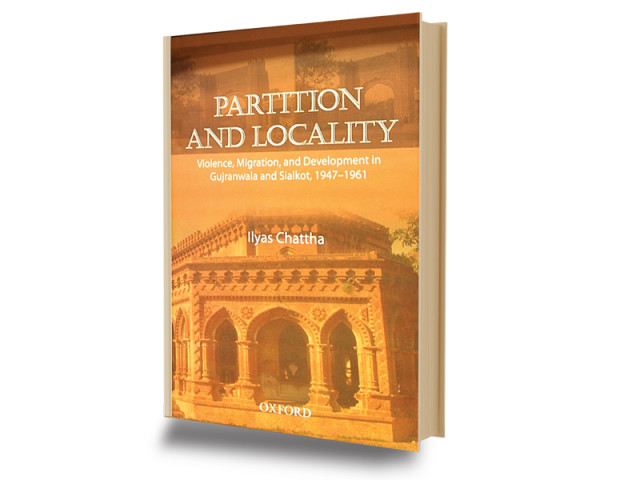Book launch: ‘Police supervised planned partition violence’
Author says 1947 migration was mostly political.

The violence witnessed in the Punjab before and during the 1947 migration was mostly political and not religiously or culturally motivated, says Dr Ilyas Chattha, the author of Partition and Locality: Violence, Migration and Development in Gujranwala and Sialkot, 1947 -1961.
Dr Chattha was speaking at the launch of the book at the Oxford University Press bookshop on Friday.
Explaining his take on the violence in the backdrop of 1947 partition of the Punjab, the author said it was ‘highly calculated’ and ‘organised’. He said his research indicated involvement of politicians as well as law enforcement officers.
The author, currently based at the Centre for Imperial and Post-Colonial Studies at the University of Southampton, said there was massive police involvement in robberies. “The house of Oberoi, a famous business tycoon at that time, was robbed under the supervision of a police officer,” he said.
Though, he said, he believed most people were not involved in the violence, most people did seek to rationalise the sufferings of the local minorities.
He said there was a social level narrative in the West Punjab avenging the Muslim community in the East Punjab. “Sufferings of non-Muslims in the West Punjab were rationalised in terms of robberies and killings in the East Punjab,” he said.
Prof Imran Ali of the Lahore University of Management and Sciences lauded Dr Chattha’s efforts. He said his work was “a dispassionate, objective and factual account of history.”
He said it was refreshing to read such accounts from Pakistan’s end that covered the events surrounding the partition. He also appreciated the author’s efforts to document the process of rehabilitation of the refugees.
Dr Yaqoob Khan Bangash, the academic commissioning editor at the Oxford University Press, said that the book presented “groundbreaking historic research.”
Dr Bangash, who is also writing an official review of the book, said using “easy language” the author had engaged the people.
He said that the events surrounding the partition had been narrated in detail. “This is the first time we will read specific details about the planned violence that took place during the partition- the names, the places.” He said that books previously written on the subject sought to generalise the incidents of violence.
Professor Iqbal Chawla from the Department of History at the University of Punjab said very little literature was available on local histories in Pakistan. He said this made research at local level difficult. “From police station reports to field research and personal accounts of the victims, the author has exhausted all available resources,” he said.
Speaking to The Express Tribune, Dr Ilyas Chattha said it was for the first time that police records were used to narrate the events of violence during the partition. Having spent six months in research in Gujranwala and Sialkot, Dr Chattha said obtaining official record and verifying authenticity was a very difficult job.
“We often had to approach the district police officer to seek permission to access the reports.” He found most of the records in the FIRs to be highly biased.
Dr Chattha said next he planned to publish research articles on the impact of partition on the Christians in Punjab.
Published in The Express Tribune, January 28th, 2012.



















COMMENTS
Comments are moderated and generally will be posted if they are on-topic and not abusive.
For more information, please see our Comments FAQ